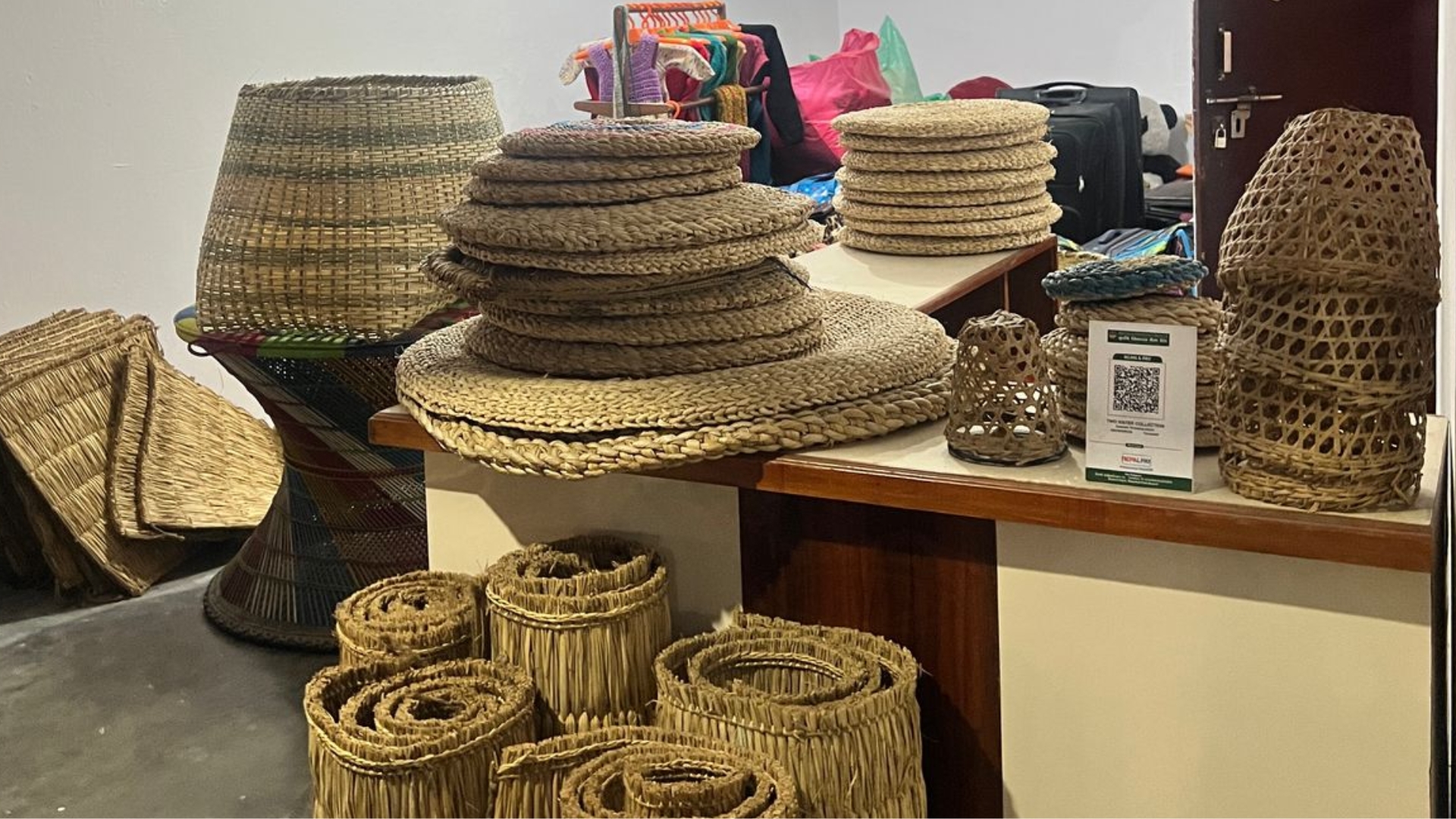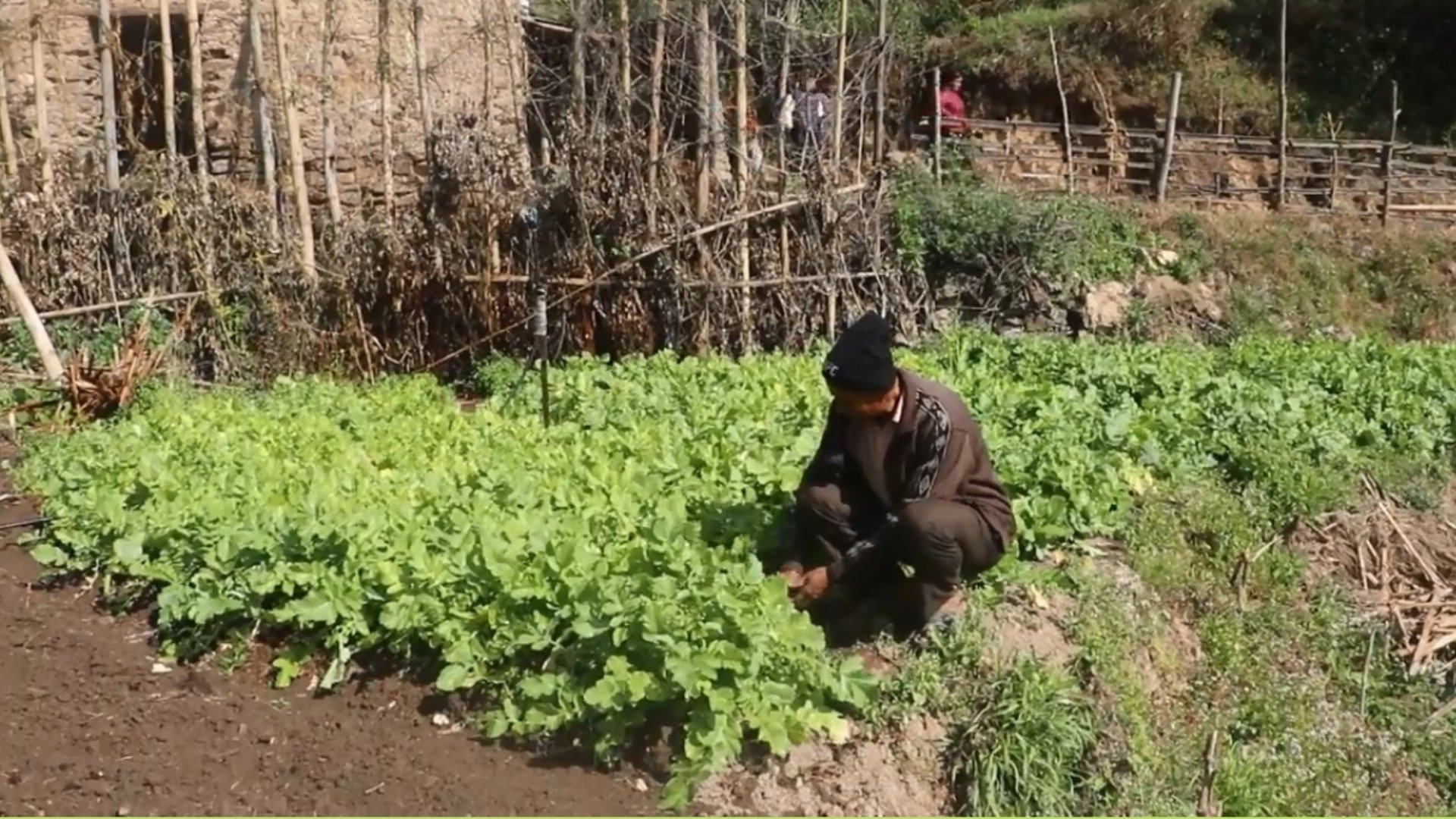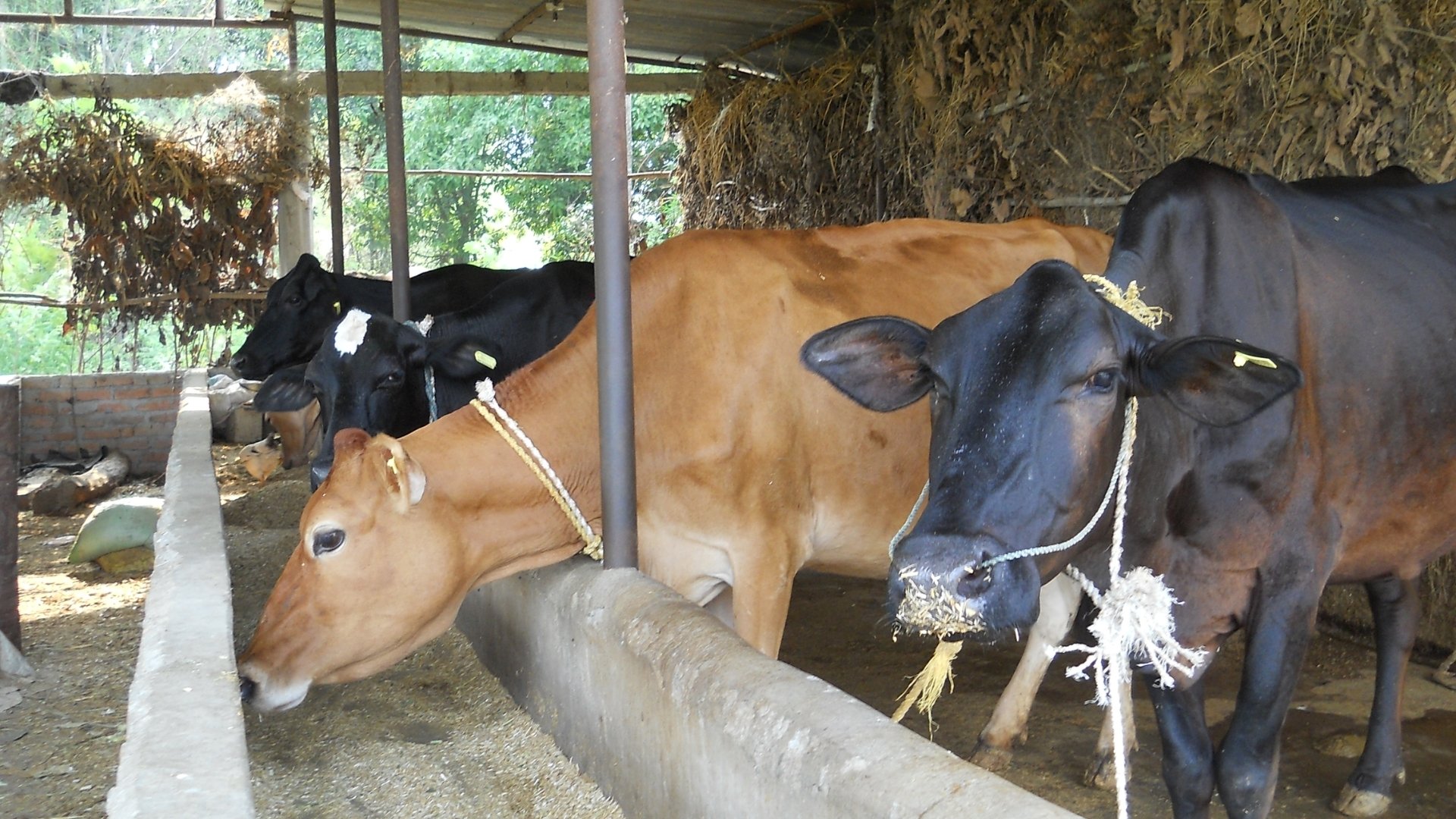Mira Poudel KC is the founder of Didi Bahini Hastakala, a wooden handicraft enterprise in Bagar, Pokhara. True to its name, Didi Bahini Hastakala was born from the shared passion of two sisters, Mira Poudel KC and Sabitra Poudel, turning passion for crafting into business.
Pokhara, a city also renowned for its artistic craft and creation, serves as Nepal’s tourism capital with a strong base for vendors who sell products like handmade paintings, pashminas, handcrafted jewelry, and hemp products.
Among the many vendors from around the country, Mira—one of the founders of Didi Bahini Hastakala, quietly found her footing in the growing market after years of hard work. She’s quick to share the credit though, pointing to her sister Sabitra Poudel, a constant supporter throughout her journey—which is why she named the venture “Didi Bahini Hastakala”.
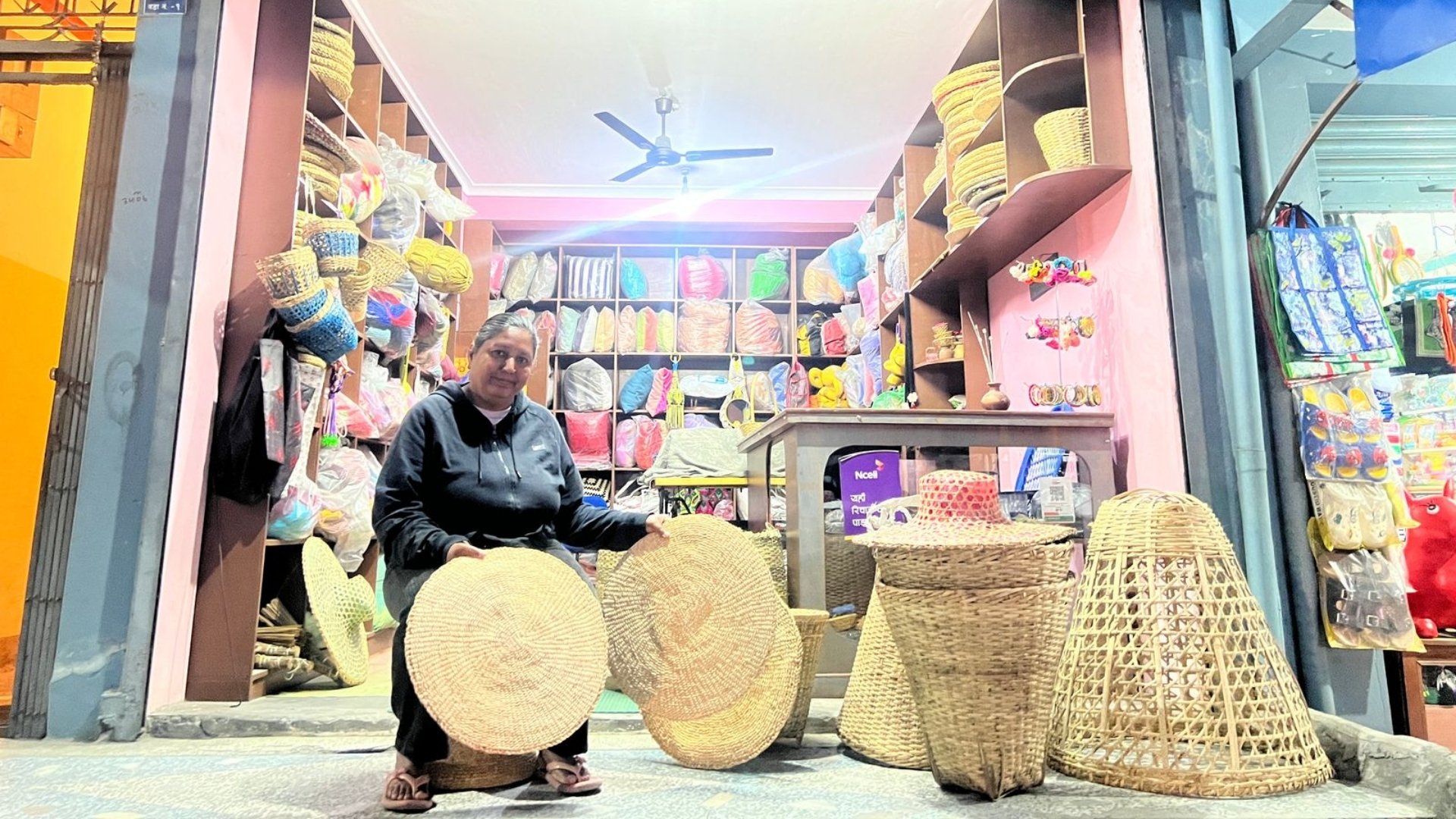
The two sisters were first introduced to handicraft by their mother, who skillfully crafted beautiful household items for the family. Inspired by their mother’s creativity, the two sisters began to explore the art of handicrafts themselves. They started experimenting with their own designs, often using whatever materials were available around the house. Corncobs, for example, became more than just waste—in their hands, they were transformed into carpets, baskets, and decorative pieces.
Though they learned the craft from their mother, Mira and Sabitra also experienced her frustration instead of encouragement. Shaped by traditional expectations, their mother believed that something like art and handicraft would never help them meet household necessities and lead to a stable career. Yet the two sisters carried on.
Turning handicraft into business: From Netherlands back to Nepal
In 1999, Pokhara Metropolitan launched a six-month training program for women, helping them learn to create homemade products. Both the sisters had joined the program, where they learned the craft of decorative accessories while also picking up some basic concepts of accounting and inventory management.
Later, Sabitra relocated to the Netherlands to continue her higher education, while Mira remained in the home country and completed her bachelor’s degree in business studies from Kanya Campus. On the other side of the world, Sabitra opened a small homemade accessories shop in the Netherlands. Knowing Mira had longed for a dream of entrepreneurship, Sabitra reached out and invited her to join the venture. Without any hesitation, Mira went to the Netherlands and helped her sister for around eight years. Mira assisted her sister in producing handmade cushions commonly used in households in the Netherlands along with handmade school bags and shopping bags.
With years of experience in the Netherlands, Mira had become well-versed in running a business. She could calculate risks and returns and possessed better market knowledge. Mira returned in 2064 BS and registered ‘Didi Bahini Hastakala’ in 2068. While she was wondering where to open her physical store, she chose a perfect tourist destination—Bagar, which is enroute Bat Cave and Mahendra Cave, two famous destinations that many Indian and European visitors don’t miss out on during their trip to Pokhara.
Initially, she began with a limited product range, which included baskets made of bamboo and woolen sweaters, to test the market. The bamboo-made baskets were light and cheaper than steel baskets, which is why people loved the product, and it was an instant sellout, with the bamboo basket emerging as her standout product. To meet the growing market demand, she then hired about 15 people to help produce the goods. A large demand came from Indian visitors who visited her shop buying items in bulk to resell in their home country. This led Didibahini to start a wholesale channel.
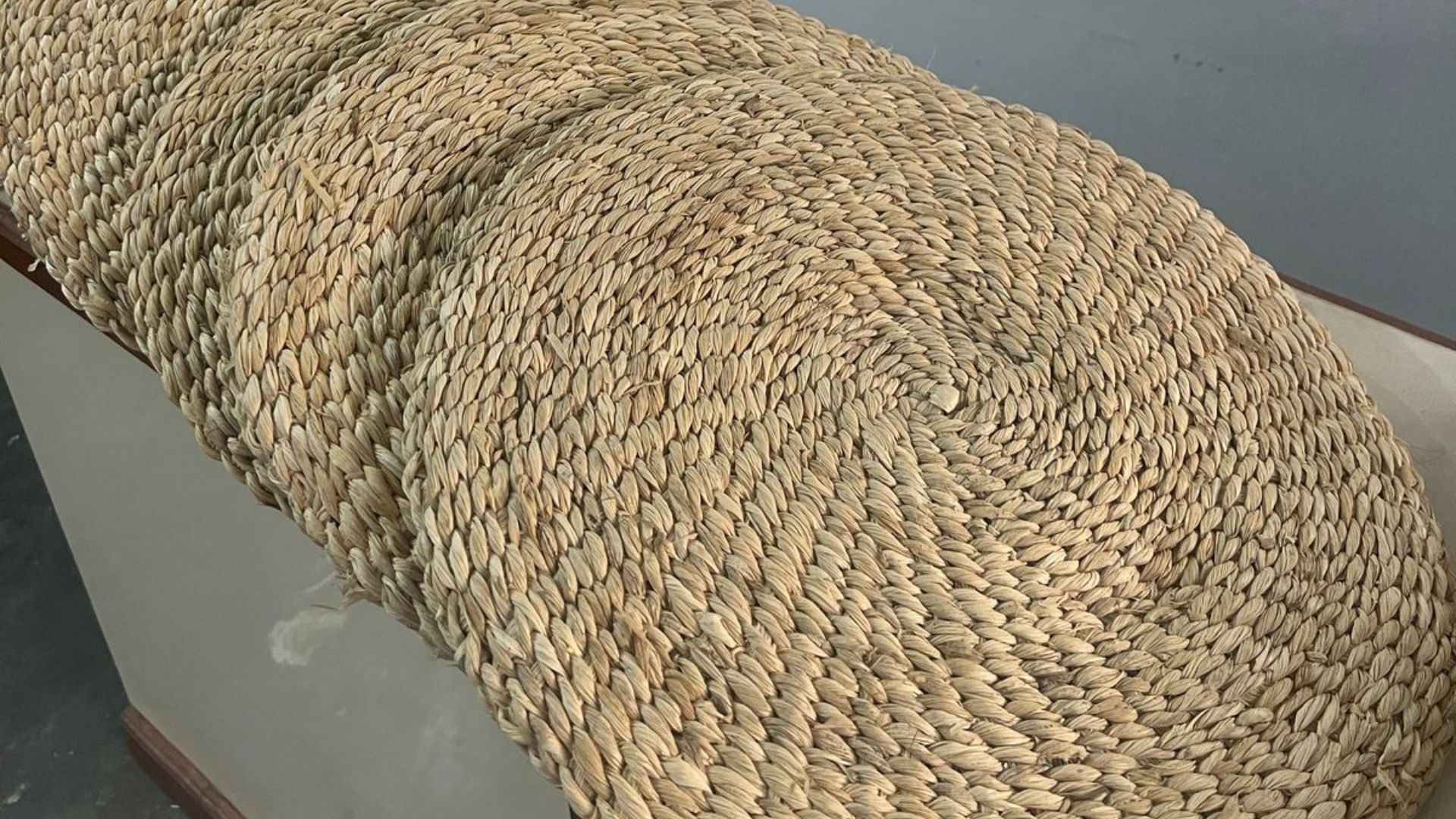
Their bamboo baskets, hay carpets, and woolen bags and sweaters are among the most sought-after items in both the Nepali and international markets. Speaking about customer preferences, Mira shares, “Foreigners prefer handcrafted products like woolen sweaters, and they even order in bulk for their family members.” The bamboo baskets are priced between Rs 500 and 1,000, depending on size, while the woolen sweaters range from Rs 3,000 to 5,000, also based on size.
After noticing growing interest from abroad, Mira decided to send a batch of handmade sweaters to her sister’s shop in the Netherlands to gauge how European customers would respond. The sweaters sold out quickly, encouraging them to begin regularly exporting select handmade items from Nepal to the Netherlands. Meanwhile, in Nepal, many locals find woolen sweaters harder to afford, as their prices are higher than those of regular clothing.
COVID effects and rebound through surge in local demand
While everything was proceeding normally, the global pandemic had some different plans for Didi Baini Hastakala as it did for many businesses around the world. Covid led to a massive drop in the number of tourists visiting Pokhara, directly affecting their sales. The economic strain became so intense that she had to reluctantly part ways with her employees.
As the impact of Covid gradually subsided, Mira remained resilient in her belief that business would flourish again.
“Unlike many who were disheartened during the pandemic, I was confident that sales would eventually return to the pre-pandemic levels.”
After the pandemic started receding tourists began revisiting Pokhara. Her Indian customers were the first to visit her shop. To her surprise, local demand for her products had increased massively, surpassing the interest of other international visitors. Mira felt a sense of relief, knowing that now she no longer had to rely on international tourist sales as her products gained local visibility. She was particularly heartened by the growing appreciation for locally manufactured goods over imported goods.
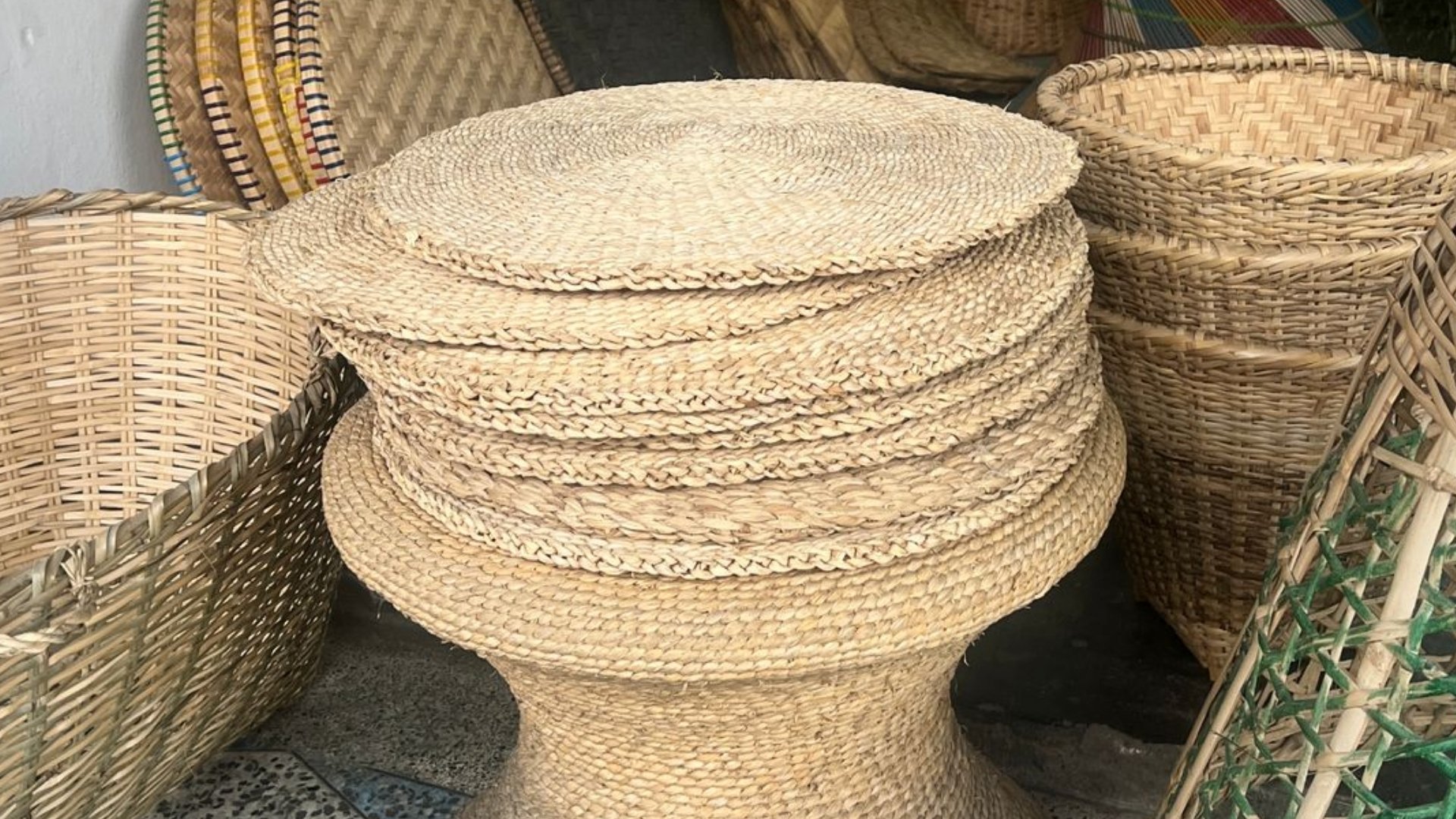
Recognizing the market opportunity, she actively started searching for opportunities to expand her local customer base. She started crafting carpets made of hay. During puja (religious ceremony), people started buying the mattress as it was lighter and affordable compared to traditionally made mattresses.
Making money and giving back to society
According to Mira, her sales peak during Dashain and Tihar. At the auspicious time of Dashain, people mainly purchase bamboo baskets and hay mattresses, items considered essentials to perform rituals during the festivals.
“During festive seasons, we used to struggle to meet the surge in customer demand because many of our staff would be on leave,” she explained. “However, since introducing remote work arrangements, we’ve been able to handle any volume of orders and deliver them on time.”
As far as sales is considered, Mira and her Didi Bahini Hastakala make monthly earnings of NRs 250,000, with half the earnings spent on salaries and raw materials and the rest remains as profits.
According to Mira, she spends half her income helping children with financial crises complete their education. Through this initiative, Mira claims she has already helped 14 students to complete their bachelor’s degree, and is currently looking after six children studying at the primary level.
“I have seen people suffer due to poor financial conditions. I want to help the children who want to read and write but are unable to do so. Currently I am doing it at a small level, but as my business expands, I am planning to expand it alongside.”

